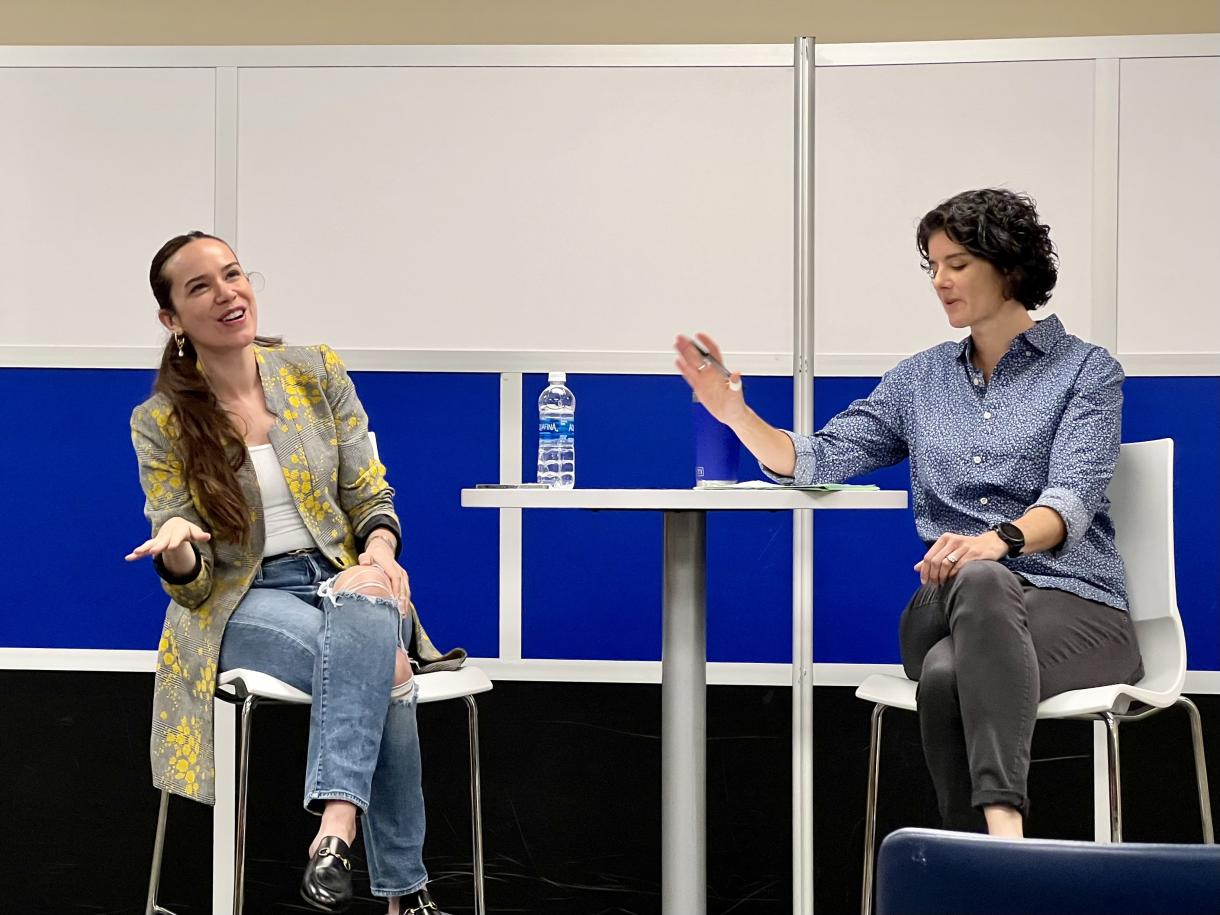

When Norma Padrón was teaching a class at the start of the Covid-19 pandemic, she received a single Zoom training on remote instruction. ”And then it was”—she made a shooing gesture—“off you go!” She shook her head. “It was awful.”
Padrón, who graduated from Duke with her master’s in economics in 2008, is a PhD health economist who has also worked at think tanks as well as a corporate incubator and accelerator. Through her education and work, she developed a deep understanding of the data challenges facing healthcare systems—and after her own negative experience with remote training, she grew obsessed with the idea of improving how healthcare teams who work with data are trained and share knowledge.
“It’s easy to forget that 77% of the work force in healthcare is non-clinical,” she said. “We haven’t invested in that when it comes to the future of work in healthcare. We pay a lot of attention, and rightly so, to physicians and nurses […], but we don’t pay attention to the behind-the-scenes workforce.”
Padrón was inspired to found EmpiricaLab, a platform focused on onboarding, training, and skilling data analytics teams working in healthcare.
Once she started the company, she had a broad and deep network of contacts such as former colleagues from the American Hospital Association who trusted her and were eager to hear how she could approach their organizations’ pain points. EmpiricaLab, which has been live since April, will begin a pilot with a Philadelphia healthcare system this fall and will be closing a pre-seed round of fundraising at the end of the month.
In a fireside chat co-hosted by Duke I&E and the Fuqua Center for Health Sector Management, Padrón shared insights with students from across Duke.
Highlights
The importance of subject matter expertise
“I suspected I wasn’t going to stay in academia,” said Padrón—adding with a smile, “I don’t enjoy loneliness”—“but I loved the experience of having built a lot of subject matter expertise. No one can take that away from you.”
Persevering in the face of challenges
Padrón—a Latina woman and first-generation college student—described her experience being underestimated. “I don’t come from a family of entrepreneurs, or connections, so tapping into communities and networks to learn and share experiences of first-generation or underestimated founders has been crucial.”
The importance of networks
“The worst thing you can do is dwell a little too much in your problem and try to solve it on your own. Chances are there’s someone somewhere who has gone through the same thing.” Padrón emphasized the importance of being open to lessons from unlikely teachers, saying, “Sometimes you’ll get leadership masterclasses from folks who don’t even work in entrepreneurship.”
Balance, schmalance
While emphasizing that this was “not advice for everyone, but simply what worked for [her],” Padrón said she’d found freedom in eschewing balance. “I would get stressed about not eating well or sleeping enough, but something’s got to give. Maybe you don’t see your family or get exercise for a while. Maybe things are going to feel shaky, and that’s fine, but I’ve learned I shouldn’t stress about not having balance.”
Finding inspiration
“I don’t come from a family of entrepreneurs […], so I look to role models.” Padrón cited Spanxx CEO Sara Blakely as an influence, admiring her energy, knowledge base, and positive outlook. “It’s easy to get bitter or let things color your outlook, but when one person says no, it’s not everyone saying no.”
The need for flexibility in the face of change
“Our platform is going to change. You have to be very okay with this ambiguity. Philosophically, the big bet is that employers will continue to invest in trying to upscale their workforce and bridging connection and training.”